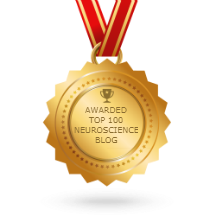-
18
Apr
Seventh International Conference on Epigenetic Robotics:
Modeling Cognitive Development in Robotic Systems
Call for Papers: Epigenetic Robotics 2007
5-7 November 2007, Piscataway, NJ, USA
Location: Rutgers, The State University of New Jersey, Piscataway, NJ, USA
Submission Deadline: 1 June 2007
http://www.epigenetic-robotics.org
Email: epirob07@epigenetic-robotics.org
Keynote Speakers:
—————–
Hod Lipson
Mechanical & Aerospace Engineering, Computing &
Information Science, Cornell University, USA
Daniel Messinger
Department of Psychology, University of Miami, USA
Carolyn Rovee-Collier and Peter Gerhardstein (co-presenter)
Department of Psychology, Rutgers, NJ, USA (Rovee-Collier)
Department of Psychology, Binghamton University-SUNY, NY, USA (Gerhardstein)
Conference Themes:
——————
In the past 6 years, the Epigenetic Robotics annual conference has established itself as a unique place where original interdisciplinary research from developmental sciences, neuroscience, biology, cognitive robotics, and artificial intelligence is being presented.
Epigenetic systems, either natural or artificial, share a prolonged developmental process through which varied and complex cognitive and perceptual structures emerge as a result of the interaction of an embodied system with a physical and social environment.
Epigenetic robotics has goals including: (1) understanding biological systems by the interdisciplinary integration of social and engineering sciences and (2) enabling robots and other artificial systems to autonomously develop skills for new environments (instead of programming them to solve problems in fixed environments).
Psychological theory and empirical evidence is being used to inform epigenetic robotic models, and these models can be used as theoretical tools to make experimental predictions in developmental psychology.
Epigenetic Robotics themes include, but are not limited to:
* The development of emotion, imitation, synchrony processing, intersubjectivity, joint attention, intentionality, non-verbal and verbal communication, sensorimotor schemata, shared meaning and symbolic reference, social learning, social relationships, social cognition (“mind reading”, “theory of mind”);
* The scope and limits of maturation, the mechanisms of open-ended development;
* The mechanisms of stage formation and stage transitions;
* The epistemological foundations of using robots to study development;
* The role of motivations, emotions, and value systems in development;
* Interaction between innate structure, ongoing developing structure, and experience;
* The interplay between embodiment, learning biases and environment;
* The differences between learning and development;
* Algorithms for self-supervision, autonomous exploration, representation making, and methods for evolving new representations during ontogeny;
* Using robots as theoretical tools (e.g., to make predictions) in experiments with children;
* Using robots in applied settings (e.g., autism therapy) with children;
* Architectures for autonomous development;
* Robots that can undergo morphological changes and how they can be used to study the interplay between cognitive and morphological development;
Important Dates:
—————-
1 June 2007: Deadline for submission of papers & posters
18 July 2007: Notification of acceptance of papers & posters
5 Sept 2007: Deadline for camera-ready papers
5-7 Nov 2007: EpiRob07 @ Rutgers
Modes of Submission:
——————–
(1) Regular Submission (8-page max). After review, regular submissions will either be accepted or rejected (no revision as short papers or posters). Regular submissions will be allocated 8 pages in the Proceedings.
(2) Abstract Submission (1-page max). After review, selected authors will be invited to present a poster. Abstract submissions will be allocated 1 page in the Proceedings.
Submission instructions will be available from the EpiRob website: http://www.epigenetic-robotics.org
Related Events:
—————
IROS (Intelligent Robots and Systems)
http://www.crim.ncsu.edu/iros2007
29 October – 2 November 2007 (San Diego)
Organizing Committee:
———————
Christian Balkenius (Lund University, Sweden)
Luc Berthouze (University of Sussex, UK)
Hideki Kozima (NICT, Japan)
Michael Littman (Rutgers, USA)
Christopher G. Prince (University of Minnesota Duluth, USA)
Program Committee:
——————
Pierre Andry (ENSEA, France)
Minoru Asada (Osaka University, Japan)
Christian Balkenius (Cognitive Science, Lund University, Sweden)
Mark Bickhard (Lehigh University, USA)
Alexander Bernardino (Instituto Superior Tecnico, Lisboa, Portugal)
Luc Berthouze (University of Sussex, UK)
Nadia Berthouze (University College London, UK)
Aude Billard (EPFL, Switzerland)
Lola Canamero (University of Hertfordshire, UK)
Robert Clowes (University of Sussex, UK)
Kerstin Dautenhahn (University of Hertfordshire, UK)
Yiannis Demiris (Imperial College, UK)
Luciano Fadiga (University of Ferrara, Italy)
Simone Fiori (Università Politecnica delle Marche, Italy)
Paul Fitzpatrick (CSAIL, MIT, USA)
Philippe Gaussier (Universite de Cergy-Pointoise & ENSEA, France)
Lakshmi Gogate (SUNY Health Science Center at Brooklyn, USA)
Rod Grupen (University of Massachusetts, USA)
George Hollich (Purdue University, USA)
Frédéric Kaplan (Sony Computer Science Lab Paris, France)
Benjamin Kuipers (University of Texas, USA)
Hideki Kozima (NICT, Japan)
Max Lungarella (University of Tokyo, Japan)
Lisa Meeden (Swarthmore college, USA)
Giorgio Metta (LIRA-Lab, Genoa, Italy)
Jacqueline Nadel (CNRS, France)
Yukie Nagai (NICT, Japan)
Chrystopher Nehaniv (University of Hertfordshire, UK)
Pierre-Yves Oudeyer (Sony Computer Science Laboratory, Paris, France)
Rolf Pfeifer (University of Zurich, Switzerland)
Christopher G. Prince (University of Minnesota Duluth, USA)
Arnaud Revel (CNRS, ENSEA, University of Cergy Pontoise, France)
Brian Scassellati (Yale University, USA)
Matthew Schlesinger (Southern Illinois University, USA)
Sylvain Sirois (Manchester University, UK)
Michael Spratling (Birkbeck College, UK)
Georgi Stojanov (SS Cyril and Methodius University, Macedonia)
Gert Westermann (Oxford Brookes University, UK)
Tom Ziemke (University of Skovde, Sweden)
For questions or more information, please contact:
epirob07@epigenetic-robotics.org
- Published by Dimitrios A. Adamos in: External announcements
- RSS feed subscription!

 Neurobot via RSS
Neurobot via RSS
